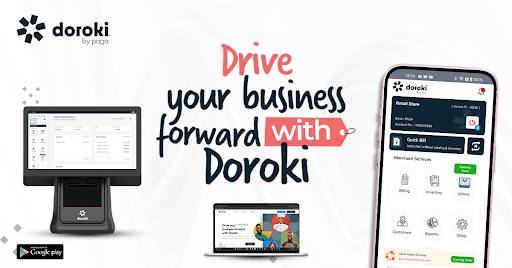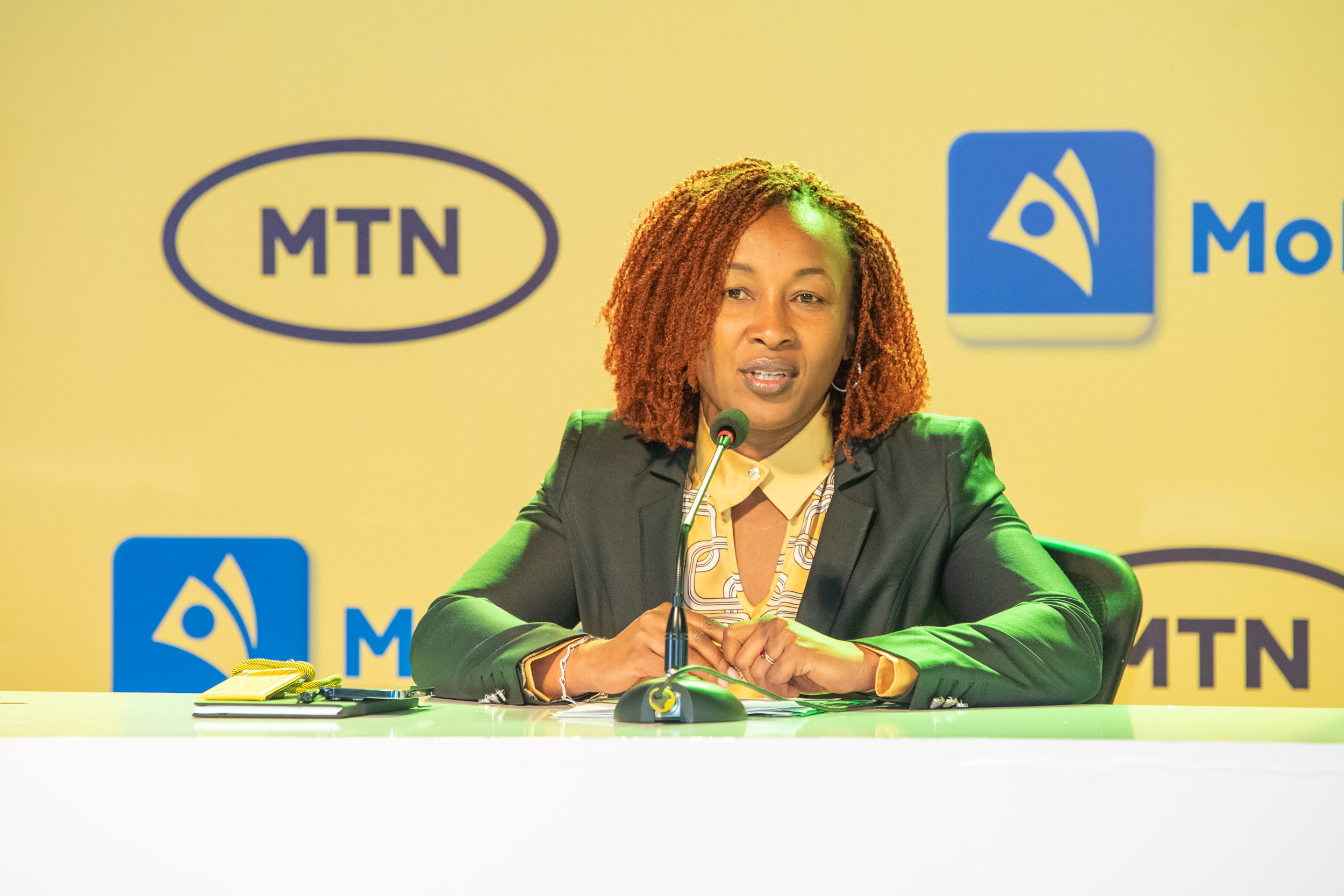Technology
👨🏿🚀TechCabal Daily – Okra’s off the menu
In partnership with Lire en Français اقرأ هذا باللغة العربية Happy pre-TGIF. Its KPI review/appraisal season. Are you feeling the heat just yet? If you need someone to blame for that soul-sucking annual review, blame Frederick Taylor. In his 1911 book, The Principles of Scientific Management, Tay...
TechCabal
published: Jul 03, 2025



Happy pre-TGIF. 
It’s KPI review/appraisal season. Are you feeling the heat just yet?
If you need someone to blame for that soul-sucking annual review, blame Frederick Taylor. In his 1911 book, The Principles of Scientific Management, Taylor laid the groundwork for performance measurement in industrial settings. In the 1950s, Peter Drucker added a new layer to performance measurement by choosing to measure performance by goals.
By the 2000s, KPIs were everywhere—from sales floors to Slack dashboards—deciding who gets promoted and who gets passive-aggressively “coached.” Today, we’ve tried to make it cuter with OKRs and continuous feedback, but let’s be honest: KPIs are still the nosy aunt at the office party, quietly judging your every move.
Anyways, we wish you the best of luck in your KPI reviews this season.
– Faith.

Startups
Fara Ashiru, Okra and Nebula founder, joins Kernel as head of engineering

Nine months after Okra, the Nigerian open banking fintech startup, changed its playbook to operate as a cloud service provider, it appears some cracks are appearing on the wall.
In October 2024, Okra launched Nebula, a cloud platform designed to compete with global providers like AWS and Azure. It offered cloud services to local startups with pricing in naira, a strategy aimed at attracting Nigerian startups and to cushion them from dollar-based costs. But Nebula likely never found a market.
By June 2025, CEO Fara Ashiru had taken a new role as head of engineering at Kernel, a UK-based revenue operations (RevOps) startup. While this is not surprising—many founders take on paid employment to keep the lights on—Ashiru has also left her roles as “founder, CEO, and CTO” of Okra in the same month.
Per Techpoint, both Okra and Nebula platforms are now offline, which may signal the end of the company’s operations. However, Okra’s web platform remains online, signalling this might simply be a pause instead.
Ashiru had earlier pointed out the cost challenges of building a cloud platform in Nigeria. Rising infrastructure expenses and the falling value of the naira made it hard for Nebula to recover its expenses on hardware. With a total funding of $4.5 million and its last raise in 2021, Okra possibly needed more capital to compete in such a demanding space. But without strong signs of traction, investors were likely not convinced to fund the startup’s new ambition.
Looking back, we wonder what could have happened if Okra had remained an open finance startup. The startup shut down key products like Balance, Income, and Transaction due to regulatory uncertainty. Yet Nigeria’s open banking framework is finally set to launch in August, encouraging banks to join in. That change could have helped Okra grow if it had stayed the course.
In the end, the company may have made a pivot too soon, in a market too hard to crack, with too little capital to survive it.
Save more on every NGN transaction with Fincra

Stop overpaying for NGN payments. Fincra’s fees are more affordable than other payment platforms for collections & payouts. The bigger the transaction, the more you save. Create a free account in 3 minutes and start saving today.
Layoffs
Flutterwave lays off 50% of its employees in Kenya and South Africa

Flutterwave, the African payments giant, has cut half of its workforce in both Kenya and South Africa. This follows its layoff in 2024, where it let go of 3% of its team to focus on enterprise clients. The message is now clear: Flutterwave might be doubling down on profitability and home advantage.
While Flutterwave trims expensive teams in smaller, more complex markets, it is rehiring some of those same roles at home.
This isn’t the first time a top startup has pulled back from multi-country operations. Paystack did this in 2023 when it laid off staff in the UAE and Europe to slow its expansion outside Nigeria. Chipper Cash also did the same. After rapid expansion, the chicken will come home to roost. Growth across African borders is expensive, fragmented and heavily regulated.
Africa’s fragmented regulation is a problem for fintechs trying to be pan-African. Flutterwave’s regulatory struggles in Kenya and South Africa are a good case study. Despite years in those markets, its licencing is still in process. That wait, combined with the rising operating costs has made the company rethink how and where it spends.
The lesson here is that the path to building a pan-African fintech may no longer lie in fast expansion. Instead, it may be wiser to dominate one market—or region where the countries are similar from a regulatory perspective—first, prove profitability, and then grow carefully.
For founders watching this, this could be a reminder: regulatory clarity, strong margins and a focused market strategy matter more than headcount or footprint.
Drive your business forward with Doroki

Whether you are a retail store, restaurant, pharmacy, supermarket, salon or spa, Doroki helps simplify your operations so you can focus on what matters most: your customers and your growth. Manage your business smarter, start here.
Internet
Nigerians are logging off as ISPs lose customers

Nigeria’s top internet service providers (ISPs) are losing customers.
According to the latest data released by the Nigerian Communications Commission (NCC), the number of active users across 127 licensed ISPs fell to 289,369 in Q1 2025, down from 307,946 recorded in Q3 2024.
Big names, big losses: Elon Musk’s Starlink, which displaced FibreOne to become the second-largest ISP in Nigeria by number of customers, lost a whopping 6,000 subscribers. FibreOne bled more than 14,000. Even the long-standing market leader, Spectranet, saw its user base shrink by 2,189.
Something is in the air, and it’s not Wi-Fi.
What’s really going on? Why are Nigerians, a population famous for being a menace online, now cutting back on internet subscriptions?
One word: a crippling economy.
Earlier in 2025, Starlink increased its subscription cost, from $24.76 to $37.14. In March, Spectranet’s data plans increased by an average of 36%. For many households and small businesses, that’s simply unsustainable. And when the economy forces you to choose between feeding, keeping the lights on, and Netflix-ing, browsing takes the back seat.
Plus, with the rise of mobile network operators (MNOs) offering cheaper and more flexible internet bundles, it is clear why users are ditching ISPs for SIM card data.
Will users eventually ditch ISPs for MNOs? Maybe not fully, but if ISPs don’t tighten their strategy to fit into the low-income country they have set up shop in, they may find themselves buffering in a market that’s moving on without them.
Accept in-person payments with Paystack Virtual Terminal!

Anyone can sell in-person. With Paystack Virtual Terminal, you can accept secure payments anywhere using just a QR code. No hardware needed. Learn more here →
Fintech
MTN MoMo launches digital insurance in Uganda

MTN is no longer just about calls, texts, and data.
The telecom giant is branching out, and fast. In Uganda, MTN has partnered with Sanlam to launch Cover by MoMo, a digital insurance product built for people who’ve long been locked out of traditional coverage.
How does it work? Users can sign up directly on the MTN MoMo app or via USSD, with premiums starting from as low as UGX 500 ($0.14) per month. Payments are deducted straight from MoMo wallets, making it easy for users already transacting with MTN. No agents, no queues, and no paperwork. Just a few taps, and you’re covered.
The move follows MTN’s recent diversification efforts. In South Africa, the company launched motorbike delivery to facilitate SIM and internet access. In other countries, it’s building MoMo into a full-on financial ecosystem with payments, savings, loans, and now, insurance.
MTN is taking “everywhere you go” seriously. Whether it’s getting online, getting paid, or getting protected, MTN wants to be the brand you reach for first. And if the company is already powering your payments, protecting your health, and delivering your SIMs, the real question isn’t what’s next. It’s: What’s left?
Get a dependable energy solution tailored to your everyday needs

Tired of blackouts and fuel costs? Power your home or business with clean, affordable energy from Altpower. No upfront payment. Just reliable power, paid in instalments. Get started here→
CRYPTO TRACKER
The World Wide Web3
Source:

|
Coin Name |
Current Value |
Day |
Month |
|---|---|---|---|
| $109,163 |
+ 2.45% |
+ 3.56% |
|
| $2,578 |
+ 5.48% |
– 0.98% |
|
| $2.26 |
+ 3.56% |
+ 2.97% |
|
| $154.62 |
+ 3.86% |
– 2.93% |
* Data as of 06.30 AM WAT, July 3, 2025.
Introducing, The Naira Life Conference by Zikoko

This August, the Naira Life Con will bring together wealth builders, entrepreneurs, financial leaders, and everyday Nigerians to share their experiences with earning, managing, and spending money. Think: bold conversations, immersive workshops, and content tracks that hand you a playbook for building real wealth. Get early bird tickets now at 30% off only for a limited time.
Opportunities
- Over 4,000 tech leaders from 15+ countries gathered in Lagos for the third Africa Technology Expo (ATE), a business-focused event spotlighting innovation and enterprise growth across the continent. Held at the Landmark Event Center, the conference featured keynotes, investor sessions, and showcases on topics like 5G, cloud, IoT, infrastructure, and startup scaling. More than 85% of attendees were senior decision-makers, including speakers from Google, MTN, and Future Africa. MTN also hosted a closed-door C-suite chat on digital transformation. With growing global interest, ATE is eyeing future editions in cities like Kigali, Nairobi, and Barbados. Interested in partnering or attending the next ATE? Get involved.
- Applications are still open for the 2025 FATE Institute Fellowship, a two-year, part-time and virtual programme for experienced Nigerian professionals passionate about entrepreneurship and policy reform. The fellowship is open to candidates with at least 10 years of relevant experience and a completed or ongoing Master’s or PhD in fields like Economics, Law, or Political Science. Fellows will work remotely, contribute to research on Nigeria’s entrepreneurship ecosystem, engage with policymakers, and take part in virtual policy discussions, without needing to leave their current roles. Apply by July 25.
- We’re launching TechCabal Insights Market Researcher
 , a tool that helps you find and analyse African tech and business data in seconds. Whether you’re looking for startup funding numbers, market trends, or investor activity, it does the digging for you—fast and accurately. Be the first to try it. Join the waitlist.
, a tool that helps you find and analyse African tech and business data in seconds. Whether you’re looking for startup funding numbers, market trends, or investor activity, it does the digging for you—fast and accurately. Be the first to try it. Join the waitlist.

Written by: Opeyemi Kareem and Emmanuel Nwosu
Edited by: Faith Omoniyi
Want more of TechCabal?
Sign up for our insightful newsletters on the business and economy of tech in Africa.
- The Next Wave: futuristic analysis of the business of tech in Africa.
- TC Scoops: breaking news from TechCabal
P:S If you’re often missing TC Daily in your inbox, check your Promotions folder and move any edition of TC Daily from “Promotions” to your “Main” or “Primary” folder and TC Daily will always come to you.

Stay in the loop
Never miss out on the latest insights, trends, and stories from Cedi Life! Be the first to know when we publish new articles by subscribing to our alerts.



